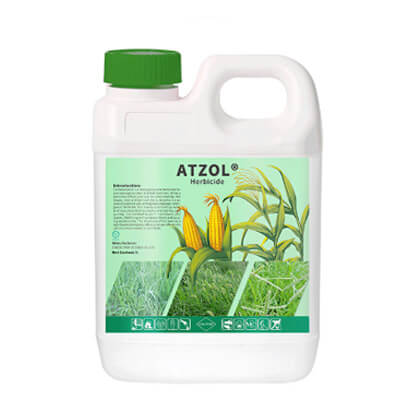
Specific Functions and Application Methods of Amino Acid Fertilizers
Amino acid fertilizers are widely used in agricultural production. They are broad-spectrum fertilizers that integrate the long-term effects of organic fertilizers, the quick effects of chemical fertilizers, the stable effects of biological fertilizers, and the synergistic effects of micro-fertilizers.
The effect of amino acids on soil microbial areas and enzyme activity
Soil microorganisms are one of the important factors in soil composition. They have an important impact on the transformation of soil organic and inorganic matter, the circulation of nutrient elements, and the formation of enzymes, which are essential biological active substances in the life process of plants. Amino acids can promote the activity of soil microorganisms, increase the number of soil microorganisms, and enhance the activity of soil enzymes. A large amount of research data at home and abroad have confirmed that amino acid agriculture use can increase the number of aerobic bacteria, actinomycetes, and fiber-decomposing bacteria. It is beneficial to accelerate the mineralization of organic matter and promote the release of nutrient elements. The specific functions are:
Rapidly supplement nutrients for crops and improve fertilizer utilization
Amino acid fertilizer is a fertilizer rich in multiple nutrients, which can fully supplement the multiple nutrients required for the growth and development of crops. At the same time, as an organic nitrogen source, amino acids can be directly absorbed and utilized by various organs of crops, and have the effects of nitrogen fixation, phosphorus solubilization, and potassium activation.
Improve the soil planting environment and regulate crop growth and development
The stimulating effect of amino acids can greatly increase the activity of microorganisms in the soil, inhibit the reproduction of pathogens, improve the soil environment of crops, degrade heavy metal ion residues, improve soil buffering capacity, and retain water, fertilizer, heat and moisture. At the same time, amino acids can reduce nutrient loss, activate fixed inorganic elements, and create good conditions for the healthy growth and smooth development of crops.
Promote better growth and development of crops, improve crop resistance, increase production and improve quality
Amino acids can increase the activity of various enzymes, synthesize endogenous hormones necessary for the growth of various crops, stimulate crop growth, improve crop resistance to drought, cold, disease, salt and alkali, and stress, and promote crops to be listed early. Therefore, amino acid fertilizers are very effective in regulating metabolism, promoting crop growth, and increasing production and improving quality.
Efficient nitrogen supplementation
Amino acid based fertilizer contains 2% nitrogen (organic nitrogen and inorganic nitrogen), which can supplement the quick-acting and short-acting nitrogen supplementation required by plants.
Soil detoxifier
Amino acids can also be applied as detoxifiers in the soil. Phosphorus and potassium fixed in the soil can be reabsorbed and utilized by plants after the application of amino acid fertilizer.
Promote the reabsorption of micro-fertilizers
Amino acids will complex some trace elements in the soil (such as copper, iron, zinc, boron, molybdenum, etc.) to make them better absorbed.
Improve quality and increase yield
Amino acids contain more than 18 different types of nutrients (such as glycine, lysine, arginine, glutamic acid, etc.), and the components of the yield of different crops are also different. After being absorbed by fruit and vegetable crops, amino acids can better promote the transformation of chlorophyll, promote crop tillering, promote flower bud differentiation, etc. It has a good intervention and improvement effect on the reduction of tillering and the formation of empty grains in the early stage of grain crops, and has a positive significance for promoting the increase of yield such as multiple grains per ear in the middle and late stages.
Why should amino acid fertilizer be applied and the time and method of application
The nitrogen fertilizer absorbed by crops needs to be converted into amino acids through photosynthesis and then transported to various parts of the plant, thereby being converted into proteins and enzymes to supply crops with fruits, branches, leaves, etc. Amino acid fertilizer is to supplement crops with amino acids containing different components on the basis of amino acids produced by photosynthesis, so that they can synthesize more nutrients, especially in the critical period of plant growth, to promote the healthy growth of crops and promote production to achieve ideal expectations.
When plant growth is frustrated or has problems, or photosynthesis is weak, timely supplementation of crops with amino acid agriculture product can make them recover faster and promote healthy growth of crops.



























